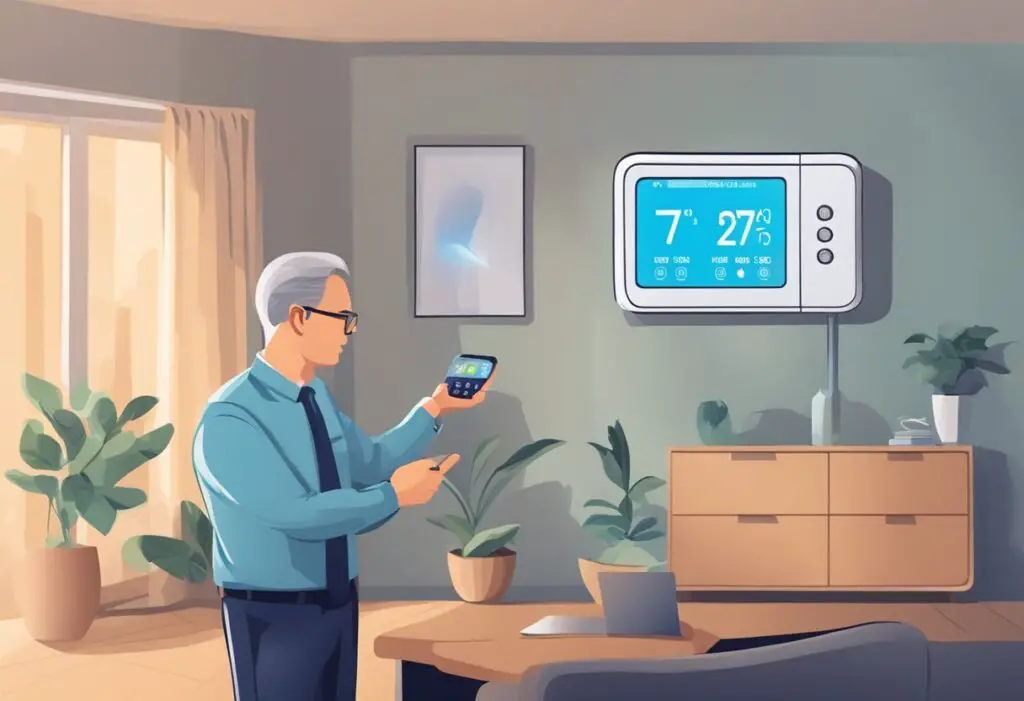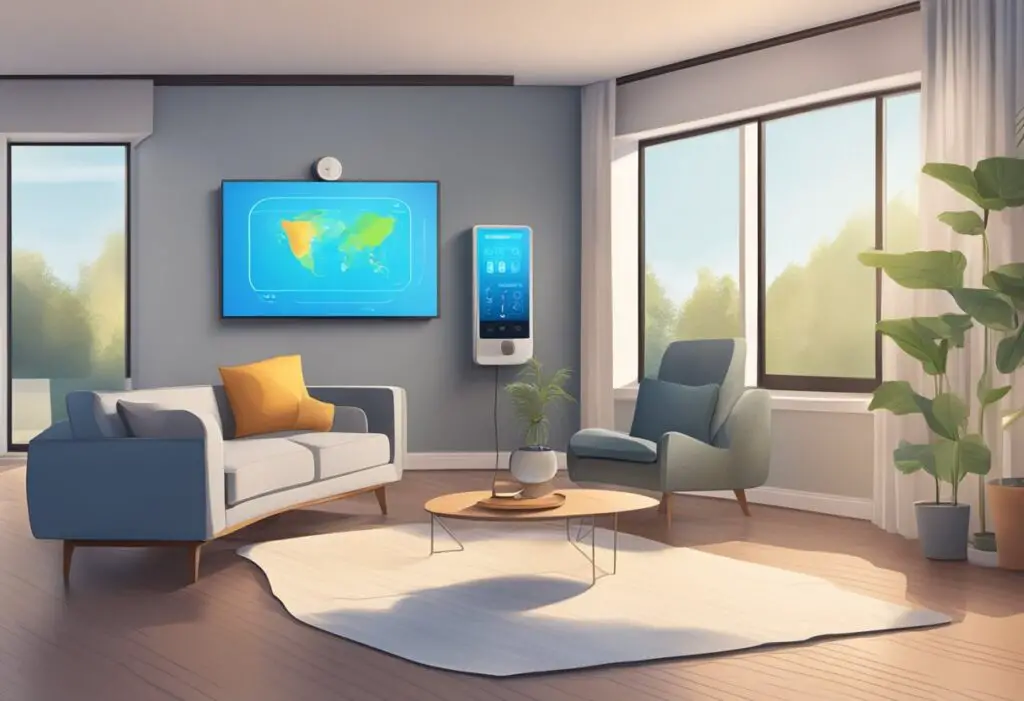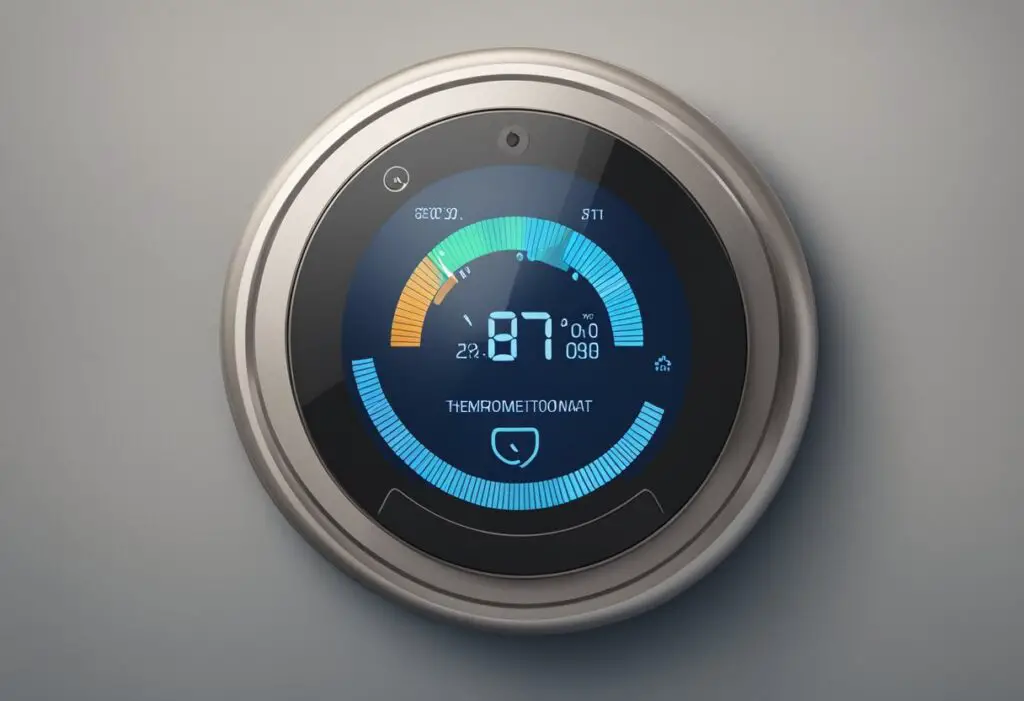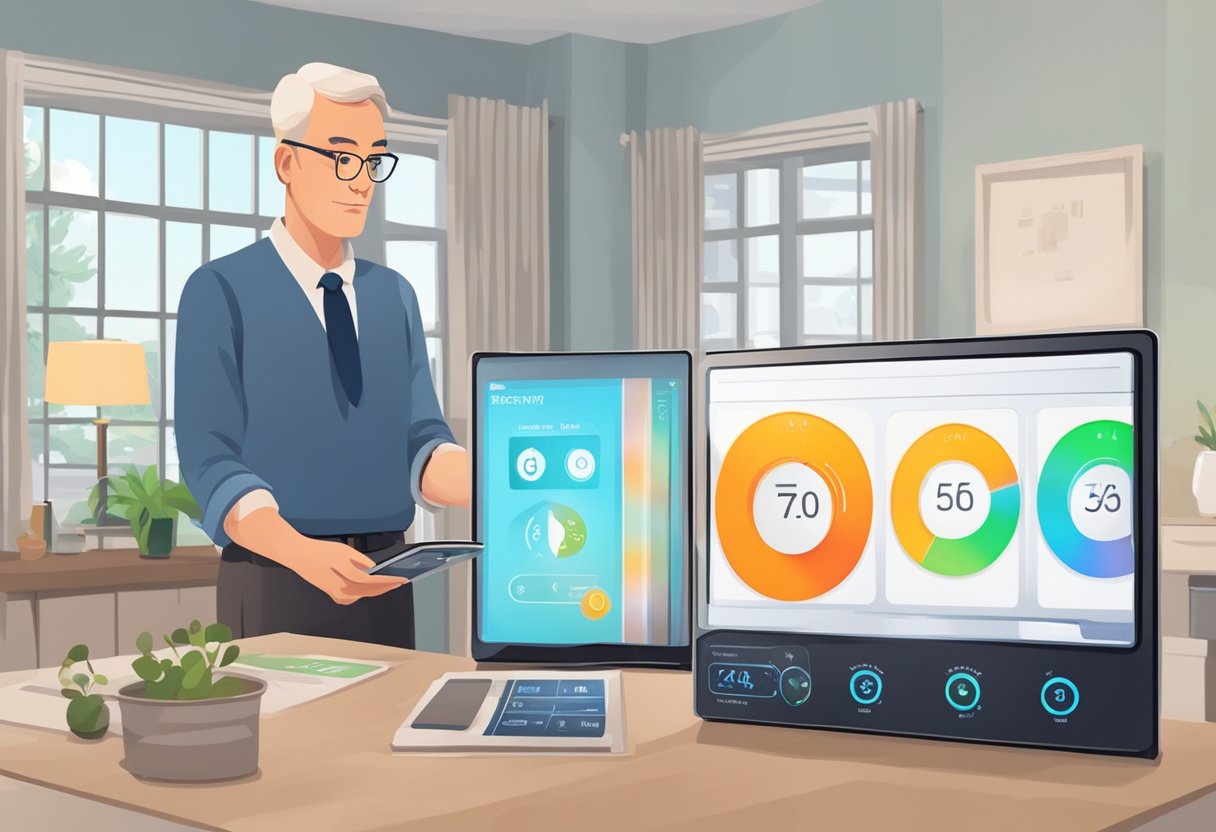Check Best Thermostat Pricing in Amazon
** As an Amazon Associate, I earn from qualifying purchases.
Smart thermostats have become increasingly popular in recent years, offering homeowners the ability to control their heating and cooling systems remotely through their smartphones or other devices. However, with this convenience comes the potential for government control. Many people may wonder if the government has the power to regulate their smart thermostats, and if so, what implications this may have for their privacy and security.

The answer to this question is not straightforward. While the government does not have direct control over individual smart thermostats, there are potential ways in which they could regulate them indirectly.
Legal Framework for Thermostat Regulation

Federal Policies
The federal government has not yet implemented any specific regulations for smart thermostats. However, the Energy Star program, which is a voluntary program run by the Environmental Protection Agency (EPA), has set guidelines for energy-efficient thermostats. These guidelines are used by some states and local governments as a basis for their own regulations.
Another federal agency, the Federal Trade Commission (FTC), has taken action against companies that have made false or misleading claims about their smart thermostat products. For example, in 2015, the FTC settled with one company that claimed its thermostats could save consumers up to 20% on their energy bills, but failed to provide any evidence to support that claim.
State and Local Legislation
Many states and local governments have enacted regulations related to smart thermostats. These regulations vary widely in scope and detail. Some states, such as California and Oregon, have set energy efficiency standards for thermostats. Other states, such as Texas and Illinois, have laws that require utilities to offer rebates or other incentives for customers who purchase smart thermostats.
Local governments have also taken action. For example, in 2019, the city of Berkeley, California, became the first city in the United States to ban natural gas hookups in new buildings. The ban includes gas-fired furnaces and water heaters, but exempts gas stovetops and fireplaces. The city also requires new buildings to have electric heat pumps and electric water heaters, as well as smart thermostats that can be remotely controlled by the utility company.
Smart Thermostat Technology

Smart thermostats are a relatively new technology that allows users to remotely control their home’s heating and cooling systems through a smartphone app or voice command. This technology uses sensors to detect when someone is home and adjust the temperature accordingly, saving energy and money.
How Smart Thermostats Work
Smart thermostats use a combination of sensors and algorithms to learn a user’s behavior and preferences, such as when they typically wake up or come home from work. The thermostat will then adjust the temperature to ensure maximum comfort and energy efficiency.
Smart thermostats can also be controlled remotely through a smartphone app, allowing users to adjust the temperature while away from home. Some models even integrate with virtual assistants like Amazon Alexa or Google Assistant, allowing users to control the temperature with voice commands.
Data Privacy Concerns
While smart thermostats offer convenience and energy savings, there are also concerns about data privacy. Since these devices collect data on a user’s behavior and preferences, there is a risk that this data could be accessed by third parties without the user’s consent.
To address these concerns, many smart thermostat manufacturers have implemented data privacy policies and encryption protocols to ensure that user data is kept secure. However, users should still be cautious when sharing personal information with these devices and carefully review the privacy policies of any smart thermostat they plan to use.
Government Intervention Justifications

When it comes to the government’s control over smart thermostats, there are several justifications that have been put forward. These justifications include energy conservation, emergency response, and public safety.
Energy Conservation
One of the main reasons why the government may want to control smart thermostats is to promote energy conservation. Smart thermostats can help reduce energy usage by automatically adjusting the temperature based on occupancy and other factors. By controlling these devices, the government can ensure that energy is being used efficiently and effectively.
Emergency Response
Another justification for government intervention in smart thermostats is emergency response. In the event of a natural disaster or other emergency, the government may need to control these devices to ensure that energy is being used appropriately. For example, if there is a power outage, the government may need to control thermostats to prevent energy usage from overwhelming the grid.
Public Safety
Finally, the government may want to control smart thermostats for public safety reasons. For example, if there is a heatwave or cold snap, the government may want to ensure that people are not putting themselves in danger by setting their thermostats to extreme temperatures. By controlling these devices, the government can help protect public health and safety.
Consumer Rights and Protections

Opt-Out Provisions
Consumers have the right to opt-out of any government-mandated smart thermostat control programs. This means that if a consumer does not want their smart thermostat to be controlled by the government, they can choose to opt-out of the program. The process for opting out should be clear and easy to follow, and consumers should not be penalized for choosing to opt-out.
Transparency and Consent
Transparency and consent are important elements of any government-mandated smart thermostat control program. Consumers should be informed about the program and how it works, including what data is being collected and how it will be used. They should also be given the opportunity to provide their consent before any control over their smart thermostat is exercised.
Check Best Thermostat Pricing in Amazon
** As an Amazon Associate, I earn from qualifying purchases.
To ensure transparency and consent, the government should provide clear and concise information about the program, including its purpose, how it will be implemented, and what data will be collected. Consumers should also be given the opportunity to ask questions and receive answers in a timely manner.
Potential Impacts of Government Control

Consumer Trust
One of the potential impacts of government control over smart thermostats is the loss of consumer trust. If the government has the ability to control the temperature in people’s homes, it could lead to concerns about privacy and government intrusion. Consumers may be hesitant to adopt smart thermostats if they fear that the government could use them to monitor their behavior or control their daily lives.
Market Dynamics
Government control over smart thermostats could also have an impact on the market dynamics. If the government were to impose regulations or restrictions on the use of smart thermostats, it could limit the growth of the market. This could lead to fewer options for consumers and slower innovation in the industry.
On the other hand, if the government were to encourage the use of smart thermostats, it could lead to increased adoption and growth in the market. This could drive down costs and make the technology more accessible to a wider range of consumers.
Case Studies and Precedents

Historical Examples
The idea of government control over people’s homes is not new. In the 1960s, the FBI conducted illegal wiretapping and bugging of the homes of civil rights activists and political dissidents. The government’s justification for these actions was national security, but it was later revealed that the FBI’s real motive was to suppress political dissent.
Similarly, during the Watergate scandal in the 1970s, President Nixon used government resources to spy on his political opponents. This included wiretapping their phones and breaking into their offices. The scandal led to Nixon’s resignation and a renewed focus on government surveillance and privacy.
Recent Incidents
More recently, there have been incidents of government control over smart thermostats. In 2016, a power company in Arizona offered customers a free smart thermostat in exchange for the ability to control their air conditioning during peak usage times. While customers could opt-out of the program, some felt pressured to participate due to the financial incentive.
In 2018, a couple in Houston claimed that their smart thermostat had been hacked by their former landlord. The landlord allegedly used the thermostat to raise the temperature to 90 degrees Fahrenheit, causing the couple to incur higher electricity bills. The incident raised questions about the security of smart home devices and the potential for abuse by those with access to them.
Final Verdict
Overall, these case studies and precedents demonstrate that government control over smart thermostats is not a new concept. While some programs may be voluntary and have benefits for consumers, there is also the potential for abuse and invasion of privacy. As technology continues to advance, it is important for individuals and governments to consider the ethical implications of smart home devices and their potential impact on privacy and security.
Future Implications and Debates

Technological Advancements
As technology continues to advance, the potential for government control over smart thermostats increases. With the rise of the Internet of Things (IoT), smart thermostats are just one of many devices that can be connected to the internet and controlled remotely. This means that the government could potentially have access to a vast amount of data about individuals’ energy usage patterns, which could be used to monitor and even control their behavior.
One potential future implication of this technology is the ability for the government to use smart thermostats to enforce energy efficiency policies. For example, the government could mandate that all homes must maintain a certain temperature range during certain times of the day, and use smart thermostats to enforce this policy. While this could potentially lead to a reduction in energy usage and lower utility bills for consumers, it also raises concerns about privacy and government overreach.
Legislative Trends
In recent years, there has been a growing trend among governments to regulate smart home devices, including smart thermostats. In some cases, this has involved the creation of new laws and regulations specifically targeting these devices, while in other cases existing laws have been applied in new ways to address the unique challenges posed by smart home technology.
One example of this trend is the California Consumer Privacy Act, which went into effect in 2020. This law requires companies to disclose what personal information they collect about consumers, and gives consumers the right to request that their information be deleted. While the law is not specific to smart home devices, it could have implications for the way that companies collect and use data from these devices.
Another example is the European Union’s General Data Protection Regulation (GDPR), which also went into effect in 2020. This regulation gives individuals greater control over their personal data, including the right to access, correct, and delete it. While the GDPR is not specific to smart home devices, it could have implications for the way that companies collect and use data from these devices.
Conclusion
Overall, the future implications of government control over smart thermostats are still unclear. While there are certainly benefits to using these devices to promote energy efficiency and reduce utility bills, there are also concerns about privacy and government overreach. As technology continues to advance, it will be important for lawmakers to strike a balance between these competing concerns and ensure that individuals’ rights are protected.
Check Best Thermostat Pricing in Amazon
** As an Amazon Associate, I earn from qualifying purchases.


